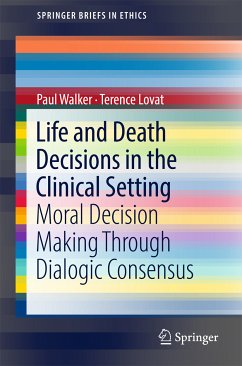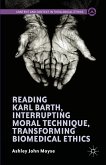This book moves away from the frameworks that have traditionally guided ethical decision-making in the Western clinical setting, towards an inclusive, non-coercive and, reflective dialogic approach to moral decision-making. Inspired in part by Jürgen Habermas's discourse theory of morality and principles of communicative action, the book offers a proportionist approach as a way of balancing out the wisdom in traditional frameworks, set in the actual reality of the clinical situation at hand. Putting this approach into practice requires having a conversation, a dialogue or a discourse, with collaboration amongst all the stakeholders. The aim of the dialogue is to reach consensus in the decision, via mutual understanding of the values held by the patient and others whom they see as significant. This book aims to underscore the moral philosophical foundations for having a meaningful conversation. Life and Death Decision in the Clinical Setting is especially relevant in our contemporary era, characterised medically by an ever-increasing armamentarium of life-sustaining technology, but also by increasing multiculturalism, a multiplicity of faiths, and increasing value pluralism.
Dieser Download kann aus rechtlichen Gründen nur mit Rechnungsadresse in A, B, BG, CY, CZ, D, DK, EW, E, FIN, F, GR, HR, H, IRL, I, LT, L, LR, M, NL, PL, P, R, S, SLO, SK ausgeliefert werden.









